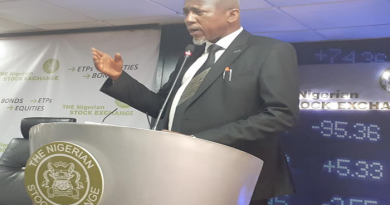Moody’s downgrades Nigeria’s local and foreign currency ratings
- based decision on deterioration on Nigeria’s government finances as well as its external debt position
Global rating agency, Moody’s has downgraded to B3 from B2 Nigeria’s local and foreign currency long-term issuer ratings as well as its foreign currency senior unsecured debt ratings and placed them on review for further downgrade.
Moody’s in a rating report issued on October 21 2022, indicated that the decision was due to a significant deterioration in Nigeria’s government finances as well as its external position.
Moody’s stated that the deterioration of government finances exerted increasing pressure on the sovereign credit profile despite a strong increase in international crude oil prices in 2022.
A rating downgrade has negative implications for Nigeria, especially for its bondholders who are mostly foreign investors, this will make borrowing costs from the international debt markets become more expensive raising Nigeria’s borrowing costs.
This is because investors also assign a higher risk rating to the bonds due to the downgrades and will demand higher interest on fresh bonds.
It could also affect current bonds driving yields upwards as investors sell off the bonds due to rating downgrades.
According to Moody’s Nigeria’s fiscal challenges and dwindling external reserves contributed significantly to the decision to downgrade the country’s ratings from B2 to B3.
“Moody’s Investors Service (Moody’s) has today downgraded Nigeria’s local currency and foreign currency long-term issuer ratings as well as its foreign currency senior unsecured debt ratings to B3 from B2 and placed them on review for downgrade. Concurrently, Moody’s downgraded Nigeria’s foreign currency senior unsecured MTN rating to (P) B3 from (P)B2, also and placed it on review for downgrade.”
“The steep fall in oil production in 2022 and the extension of the expensive oil subsidy have almost entirely eroded the boost to government revenue and exports that would otherwise have been anticipated from higher oil prices. Policy levers available to manage weaker oil revenue and rising borrowing costs amid monetary tightening in Nigeria and globally are limited.”
“Similarly, on the external front, the capacity of the Central Bank of Nigeria (CBN) to protect foreign exchange reserves from external outflows has its limits.” It explained.




